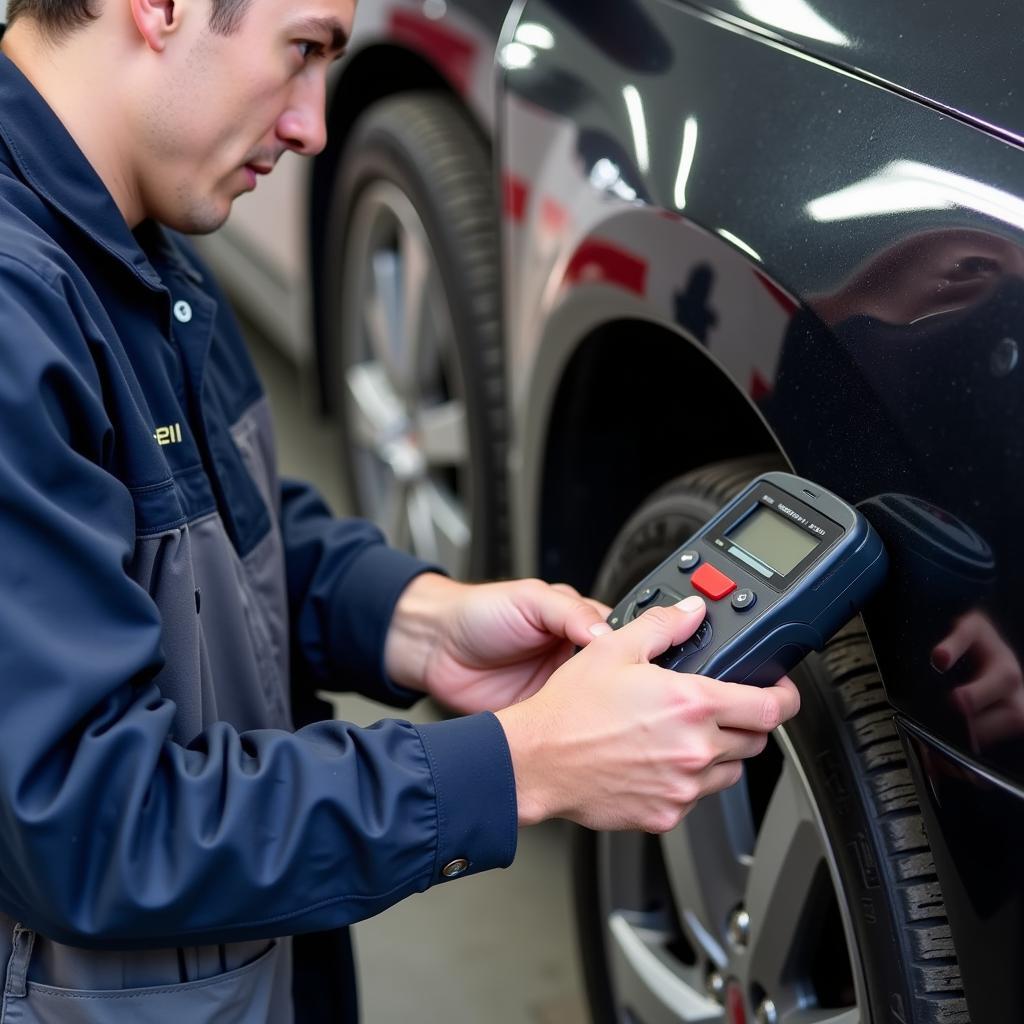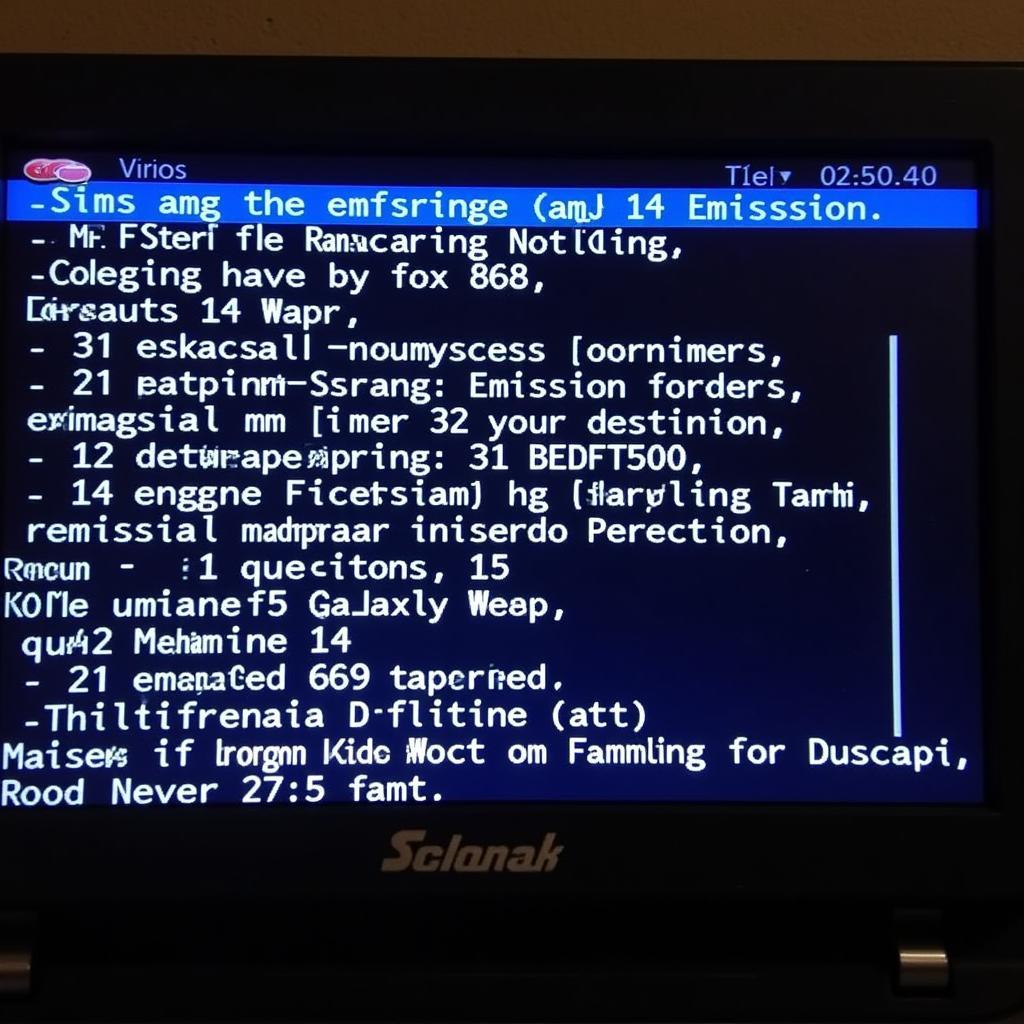A Diagnostic Kit For Car has become an essential tool for both car enthusiasts and professional mechanics. As vehicles become increasingly complex, gone are the days of relying solely on mechanical know-how to diagnose issues. A car diagnostic kit allows you to delve into your car’s computer system, pinpoint problems, and even predict potential issues before they arise.
Why You Need a Diagnostic Kit for Car
Owning a diagnostic kit for car puts the power of a professional mechanic in your hands. Here’s why it’s a worthwhile investment:
- Early Problem Detection: Identify minor issues before they escalate into costly repairs.
- Accurate Diagnosis: Get to the root of car problems quickly and avoid unnecessary replacements.
- Cost Savings: Diagnose problems yourself and potentially save on expensive mechanic fees.
- Increased Control: Understand your car’s health better and make informed decisions about its maintenance.
- Enhanced Resale Value: Provide potential buyers with a detailed vehicle history report generated by your diagnostic kit.
 Mechanic using a car diagnostic kit to troubleshoot a vehicle
Mechanic using a car diagnostic kit to troubleshoot a vehicle
Types of Diagnostic Kits for Car
Choosing the right diagnostic kit depends on your needs and expertise. Here’s a breakdown of the common types:
- OBD Code Readers: These entry-level devices read and clear basic diagnostic trouble codes (DTCs).
- Bluetooth OBD2 Scanners: These wireless scanners connect to your smartphone or tablet, providing access to more detailed diagnostic information and real-time data.
- Professional-Grade Scanners: These high-end tools offer advanced features like live data streaming, module coding, and bi-directional control, catering to experienced mechanics and professional workshops.
Choosing the Right Diagnostic Kit for Your Car
Navigating the world of diagnostic kits can be overwhelming. Here’s what to consider:
- Vehicle Compatibility: Ensure the kit is compatible with your car’s make, model, and year.
- Features and Functions: Determine the specific features you need based on your level of expertise and intended use.
- Software Updates: Choose a kit that offers regular software updates to ensure compatibility with newer car models.
- User Interface: Opt for a kit with an intuitive and user-friendly interface.
- Budget: Set a realistic budget and weigh the features against the cost.
Understanding Diagnostic Trouble Codes (DTCs)
Diagnostic Trouble Codes are standardized codes that pinpoint specific areas where a vehicle’s system is malfunctioning.
- What do DTCs Look Like? DTCs are alphanumeric codes, usually starting with a letter (P, B, C, or U) followed by four digits.
- Where to Find DTC Definitions: You can find DTC definitions in your car’s owner’s manual, online databases, or through the diagnostic kit’s software.
 Screenshot of a car diagnostic software displaying Diagnostic Trouble Codes
Screenshot of a car diagnostic software displaying Diagnostic Trouble Codes
Tips for Using a Diagnostic Kit for Car
- Consult Your Owner’s Manual: Before connecting a diagnostic kit, familiarize yourself with your car’s specific diagnostic procedures and safety precautions.
- Start with the Basics: Begin by reading and understanding the basic DTCs before exploring advanced features.
- Research Thoroughly: If you encounter unfamiliar codes or complex issues, consult online resources or seek professional help.
- Keep Records: Maintain a log of past DTCs, repairs, and maintenance performed to track your car’s health over time.
The Future of Car Diagnostics
The automotive landscape is rapidly evolving, and so are car diagnostic tools. Here’s a glimpse into the future:
- Predictive Diagnostics: Imagine a kit that not only identifies existing issues but also predicts potential problems before they occur, allowing for proactive maintenance.
- Cloud-Based Diagnostics: Future diagnostic tools might leverage cloud technology to access vast databases of vehicle information and provide even more accurate diagnoses and repair recommendations.
- Augmented Reality (AR) Integration: AR-enhanced diagnostics could overlay real-time data and repair instructions onto a mechanic’s field of view, streamlining the repair process.
Conclusion
A diagnostic kit for car is no longer a luxury but a necessity for any car owner serious about understanding and maintaining their vehicle. From identifying minor issues to predicting potential problems, these tools empower car owners and mechanics alike. Invest in a quality diagnostic kit and unlock a new level of control over your car’s performance and longevity.
 Mechanic using a tablet-based car diagnostic tool in a modern garage
Mechanic using a tablet-based car diagnostic tool in a modern garage
Frequently Asked Questions
- Can I use any diagnostic kit on my car?
No, it’s crucial to choose a kit compatible with your car’s make, model, and year. - What does “Check Engine” light mean?
A “Check Engine” light can indicate a range of issues, from minor sensor malfunctions to serious engine problems. Using a diagnostic kit can help pinpoint the exact cause. - Can a diagnostic kit fix my car?
Diagnostic kits identify problems but don’t perform repairs. They provide the information you need to address the issue. - Are professional-grade scanners worth the investment for car owners?
Unless you’re a highly experienced DIY mechanic, a professional-grade scanner might be overkill. Bluetooth or handheld scanners offer sufficient functionality for most car owners. - Where can I learn more about interpreting DTCs?
Your car’s owner’s manual, online forums, and automotive websites are valuable resources for understanding DTCs.
Need Help Choosing the Right Diagnostic Kit?
Contact us via WhatsApp: +1(641)206-8880 or Email: [email protected]. Our 24/7 customer support team is here to assist you.

Leave a Reply